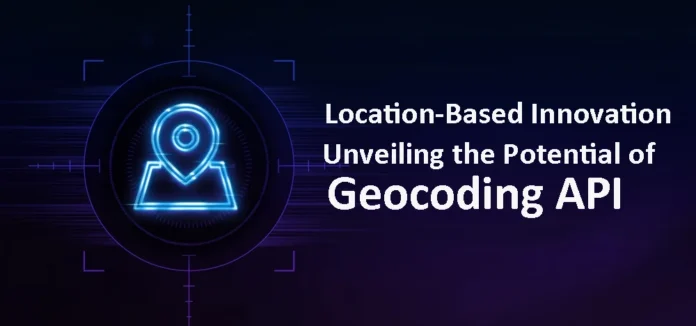The digital revolution has sparked an era of innovation, with one of the most groundbreaking advancements being the geocoding API. This technology is not just about pinpointing locations; it’s about unleashing a new wave of creativity and functionality that is shaping industries and user experiences. As we delve into the world of geocoding API, we will explore its potential and the future of location-based innovation.
Beyond Pinpointing: Geocoding API’s Contribution to Innovative Location Solutions
Geocoding API is more than a tool for identifying geographic coordinates. It’s a gateway to a plethora of location-based solutions, contributing significantly to technological innovation.
Geocoding API provides the ability to convert addresses into geographic coordinates (latitude and longitude) and vice versa. This seemingly simple functionality has profound implications. By understanding the precise location of a given address, businesses can create targeted marketing campaigns, logistics companies can optimize their routes, and government agencies can improve their emergency response.
In the realm of social media, geocoding API has paved the way for location-tagging features. By tagging their location, users can share their experiences more vividly, contributing to the richness and diversity of the digital landscape. This has also opened doors for businesses to reach their audience more effectively. For instance, restaurants can target ads to users who have tagged their location nearby, leading to increased customer engagement and revenue.
Furthermore, geocoding API’s ability to reverse geocode (converting geographic coordinates back to human-readable addresses) is vital in various sectors. For instance, in the automotive industry, this feature is crucial for GPS navigation systems. By translating the car’s coordinates into a recognizable address, drivers can navigate unfamiliar territories with ease.
Geofencing Possibilities: Enhancing User Experiences through Geocoding API
Geofencing, another innovation made possible by geocoding API, is the practice of setting up virtual boundaries around a specific location. When a device enters or leaves this area, an action can be triggered, providing a wealth of opportunities to enhance user experiences.
In the retail sector, geofencing has revolutionized the shopping experience. Stores can send push notifications to customers’ phones when they are in proximity, alerting them to sales or special promotions. Furthermore, geofencing can help brick-and-mortar stores understand customer behaviour better. By tracking when customers enter and leave the store, retailers can gain insights into peak shopping times and customer dwell times, enabling them to optimize their staffing and inventory management.
In the realm of smart homes, geofencing adds a layer of convenience and efficiency. Homeowners can set up their smart devices to react based on their location. For example, lights can be programmed to turn off when the owner leaves the house, and the thermostat can adjust the temperature when they are on their way home, enhancing comfort while saving energy.
Transportation and logistics companies also benefit from geofencing. They can monitor their vehicles and goods in real-time, ensuring they stay within designated routes and zones. This not only improves efficiency but also enhances security by alerting the company if a vehicle deviates from its path.
Real-Time Location Data: The Driving Force Behind Location-Based Innovations
The power of geocoding API lies in its ability to provide real-time location data. This real-time aspect is the driving force behind many location-based innovations, enabling businesses to respond instantly to changing circumstances and user needs.
In the field of logistics and supply chain management, real-time location data is critical. Companies need to know the exact location of their goods at all times to manage their inventory effectively and ensure timely delivery. With geocoding API, they can track their shipments in real-time, making adjustments as needed to avoid delays and maintain customer satisfaction.
For ride-hailing services like Uber and Lyft, real-time location data is the backbone of their operations. Drivers and riders need to know each other’s exact location to facilitate pick-ups and drop-offs. Moreover, real-time location data enables these services to calculate the fastest route, taking into account current traffic conditions.
In emergency response scenarios, real-time location data can be a matter of life and death. Emergency services need to know the exact location of the incident to respond as quickly as possible. Geocoding API ensures that they have this information at their fingertips, potentially saving lives.
Industry Case Studies: Success Stories of Businesses Leveraging Geocoding API for Innovation
Several industry case studies highlight the success stories of businesses leveraging geocoding API for innovation.
Airbnb, the revolutionary home-sharing platform, relies heavily on geocoding API. By displaying the exact locations of available listings on a map, Airbnb makes it easy for users to find accommodations in their desired area. Furthermore, Airbnb uses geocoding API to provide hosts with an estimate of their potential earnings based on their location, encouraging more people to list their properties.
Uber Eats, a food delivery service, uses geocoding API to connect customers with nearby restaurants. By knowing the customer’s exact location, Uber Eats can suggest restaurants in the vicinity, ensuring that the food arrives hot and fresh. Moreover, customers can track their delivery in real-time, enhancing transparency and customer satisfaction.
In summary, geocoding API is a powerful tool that unlocks a world of possibilities. Beyond pinpointing locations, it serves as a catalyst for innovation, driving the development of location-based solutions across various industries. With real-time location data, businesses can respond swiftly to evolving user needs, elevating their services to new heights. As these industry case studies show, the potential of geocoding API is vast, and the future of location-based innovation looks promising.


